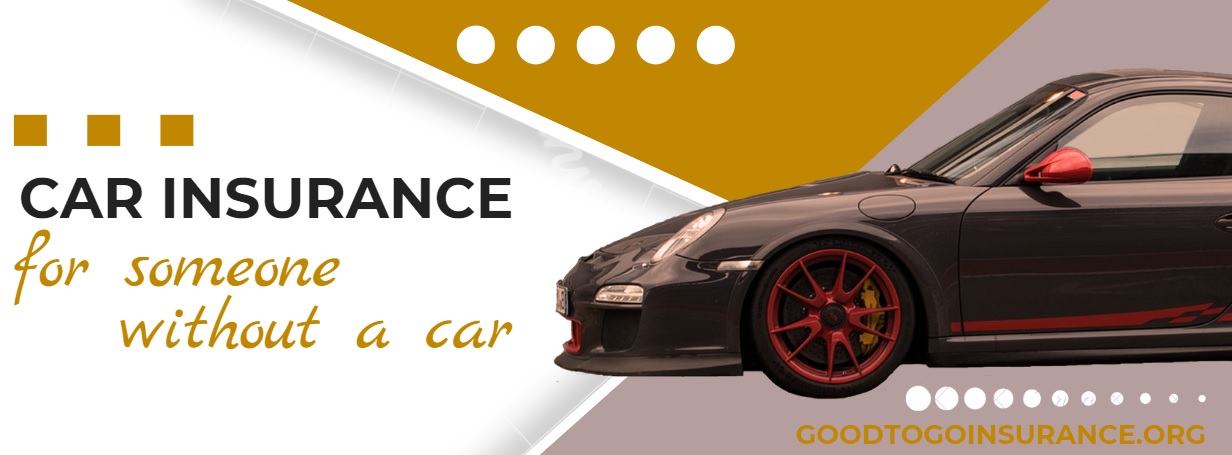You may be wondering if you need car insurance if you don’t actually own a car. While auto insurance is mandatory for car owners, there are still reasons why someone without a vehicle may need coverage. In certain situations, car insurance for someone without a car is needed. This is typically referred to as non-owner car insurance.
In this article we’ll go over non-owners auto insurance, including who needs it, how much it costs, what it covers, and tips for saving money. We’ll also look at sample quotes from five major insurers to give you an idea of how much non-owner auto insurance coverage costs.
Who Needs Car Insurance Without a Car?
Here are some examples of people who may need car insurance even if they don’t own a vehicle:
- Occasional drivers: You may drive a family member or friend’s car occasionally. In this case, you need insurance to be covered when operating someone else’s vehicle.
- Rideshare drivers: Drivers for Uber, Lyft, and other rideshare services often use their personal cars for work. But you’ll need coverage even if you rent a car just for ridesharing purposes.
- Young drivers: Teenagers and young adults may want to establish a good driving record before purchasing their own car. Having insurance helps build a driving history.
- Lower-income individuals: Those who can’t afford to buy a car right now may still need to drive every so often. Low-income car insurance might not be the perfect solution this time. However, short-term or non-owner car insurance allows for this flexibility.
- Senior citizens: Older individuals who have given up driving may still ride as passengers with family or friends. Non-owner insurance provides coverage when riding with others.
How Much Does Non-Owner Car Insurance Cost?
Car insurance rates for non-owners are usually quite reasonable compared to standard auto insurance. Full coverage costs from $400 to $900 per year on average, depending on factors like your age and driving record. Minimum liability-only policies range from $100 to $300 annually.
Here are estimated quotes from five top insurers for a 35-year-old female driver with a clean record getting minimum liability coverage:
- Geico – $220 per year
- Progressive – $235 per year
- State Farm – $255 per year
- Allstate – $270 per year
- USAA – $200 per year
The cheapest non-owner insurer is USAA but you need to be a military member, vet, or family member of a military service member to qualify. Geico has low rates for non-owner car insurance and they provide coverage in all 50 states.
Exact non-owner auto insurance quotes vary based on personal factors like your age, gender, location, and driving history. But in general, non-owner car insurance costs significantly less than standard policies since you’re not insuring a specific vehicle.
What Does Non-Owner Car Insurance Cover?
Non-owner car insurance provides liability coverage, which protects you if you cause property damage or injuries to others while driving a borrowed or rented car. This satisfies state minimum liability requirements.
Some non-owner policies also include:
- Uninsured/underinsured motorist (UM/UIM) – Covers injuries if you’re hit by an at-fault driver with insufficient or no insurance.
- Personal injury protection (PIP) – Pays medical expenses for you and passengers after an accident, regardless of fault.
- Comprehensive & collision – These optional coverages pay for damage to the car you’re driving. Helpful if you borrow an expensive vehicle.
Non-owner insurance does NOT cover damage to the vehicle you’re driving. And it may not cover rental cars – supplemental rental coverage can be purchased. Read policies carefully to confirm what’s included and excluded.
Ten Tips to get the Cheapest Car Insurance When you Don’t Own a Car
- Compare quotes from at least 5 insurers – Rates can vary significantly between companies.
- Opt for minimum liability coverage – This provides protection at the lowest cost. Skip optional coverages to save more.
- Take a defensive driving course – Completing one can make you eligible for rate discounts of up to 10%.
- Ask about discounts – Options like a multi-policy, paid-in-full, good student, etc. can potentially lower your premium.
- Raise deductibles – Choosing a higher deductible of $500 or $1,000 means you pay more out-of-pocket per claim, but your rate will decrease.
- Limit policy term – A 6-month policy often costs less overall than 12-month coverage. But you must renew more frequently.
- Maintain good credit – Insurers may use credit-based scores as a pricing factor, so keep your credit report in shape.
- Avoid gaps in coverage – Lapses can make you seem like a riskier customer. Maintain continuous insurance.
- Shop around at renewal – Don’t auto-renew. Re-compare quotes every renewal period to find any new savings.
- Inquire about discounts – Ask insurers if they offer any discounts for being car-free or low-mileage. This can yield savings.
The Bottom Line on Car Insurance Without a Car
A non-owner policy will protect you in the event you get into a wreck when you don’t actually own a car. Non-owner liability coverage helps comply with financial responsibility laws, provides access to rental cars, and maintains a continuous insurance history for when you do buy a car.
Carefully comparing insurers and policies can help you find the most affordable rate. With a little shopping around, non-owner car insurance can be affordable. To compare quotes where you live, enter your zip code. Save more money today on non-owner auto insurance.
